One of these days I will probably see a production of Don Giovanni set in a research station in the Antarctic. English Touring Opera, ambitious and valiant, haven’t gone that far yet. But Lloyd Wood’s new staging, part of an ETO threesome now hopping round the country, still makes the eyebrows shoot up. This time the Don and his girl bevy are scuttling round the Viennese sewers, circa 1900. Well, that’s what the programme booklet tells us; though if it hadn’t been for Elvira’s Wiener Werkstätte dress, the hint of a Klimt mosaic and a tiddly horn gramophone, you might just accept Anna Fleischle’s grim designs as a fair solution to the simple need for a single set, easily transported.
The big worry for me, at any rate, didn’t lie in the sewers, or the suspicion that Wood would deposit his opera on the consulting couch of Sigmund Freud. (He didn’t.) It lay instead in George von Bergen’s Don, sung with a voice that careens with little ballast, frequently oblivious to the notes’ precise pitch. Expressive emoting is all very well, but not to the point of making the listener seasick. At least the tonal unpleasantness falls in line with Wood’s particular view of the Don: not so much a rampaging Lothario, more a bludgeoning, selfish bully. And emollient singing is on hand to brighten and vary. There’s Matthew Stiff’s Leporello, fetchingly downtrodden and human; and Bradley Travis’s Masetto, the production’s easy winner of the Crisp Diction Prize. You also get reasonable delivery, if with a few kinks, from Ania Jeruc, Camilla Roberts and Lucy Hall, cast as the Don’s female prey.
It helps, too, that despite the pugnacity and catacomb chill, this Don Giovanni still manages to be funny. Part of that stems from Jeremy Sams’s colloquial English translation, worthy at times of a superior Carry On film. There’s also humour in the stage business and the bustle of the ETO orchestra, cleanly conducted by Michael Rosewell. If only von Bergen would nail down his pitches, beef up his tone, and push less. Cast changes will arrive in April, but I hope the production’s energy remains when they reach journey’s end on 10 June in Carlisle.
There’s less chance of penguins or Viennese sewer life waddling through the Greek drama of Gluck’s Iphigénie en Tauride, least of all in James Conway’s production. Fleischle’s austere set — including walls in need of a little re-plastering — never interferes with contemplation as the luckless Agamemnon siblings come together for more outpourings of blood and guilt.
The chief drawback to Conway’s production is that it’s uphill work feeling emotionally gripped; though that doesn’t stop more abstract pleasures from giving the audience quite a good time. At best, Gluck’s music woos the ear with its elegant poise, inventive harmonies and lyrical sweep. The orchestra’s no-frills, no-nonsense playing and Martin André’s conducting are also congenial, though they might have hit home even more sharply with the thrust and tang of period instruments. As Iphigénia, Catherine Carby’s expressive range could be wider both in tone and dynamics, yet there’s still a steady eloquence here that keeps the show on the road. Grant Doyle’s Oreste suffers a bit from von Bergen’s disease, but the flabby pitches and bluster nicely retreat when he’s more subdued, awaiting the sacrificial chop in Act Two.
Elsewhere, John-Colyn Gyeantey’s Plyade — in a visibly gay relationship with Oreste — needs extra honey in his voice, while a relaxing pill would definitely help Craig Smith’s Scythian king Thoas, too much knotted in anger. His followers, also, aren’t quite ideal, victims of Bernadette Iglich’s choreography, alternately footling and obscure, though the chorus in general, as priestesses or Scythians, couldn’t be finer. Strong and confident, they’re one of English Touring Opera’s glories.
And full marks for daring, at least, for the casting of the plot’s deus ex machina, the goddess Diana herself. When a pigtailed little girl, Pepper Cometti, arrived, shoed in yellow wellies, the first night audience was even more surprised than the characters onstage. Vocally, Gluck’s flowing lines of recitative are too arduous for such a young voice, but as a final injection of sunshine and innocence into this opera’s blood-stained world, Pepper’s Diana sent me out into the night with a smile.
Got something to add? Join the discussion and comment below.
Get 10 issues for just $10
Subscribe to The Spectator Australia today for the next 10 magazine issues, plus full online access, for just $10.
You might disagree with half of it, but you’ll enjoy reading all of it. Try your first month for free, then just $2 a week for the remainder of your first year.

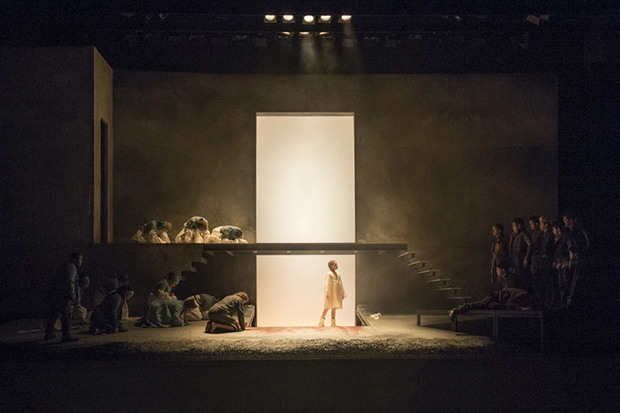
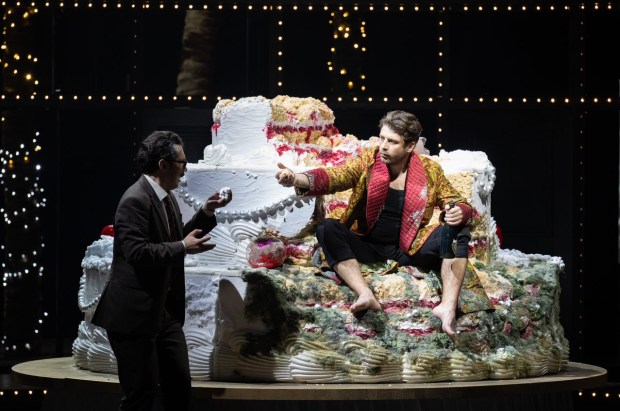
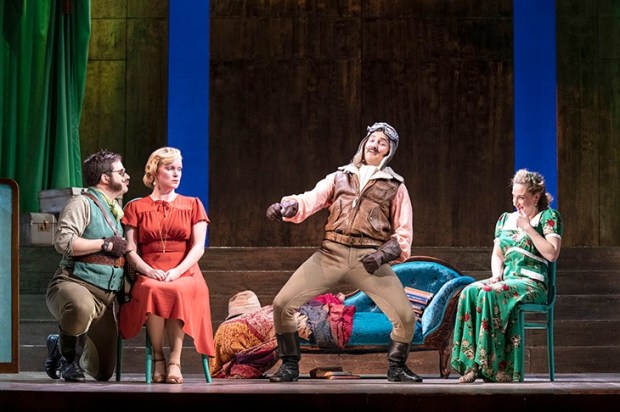
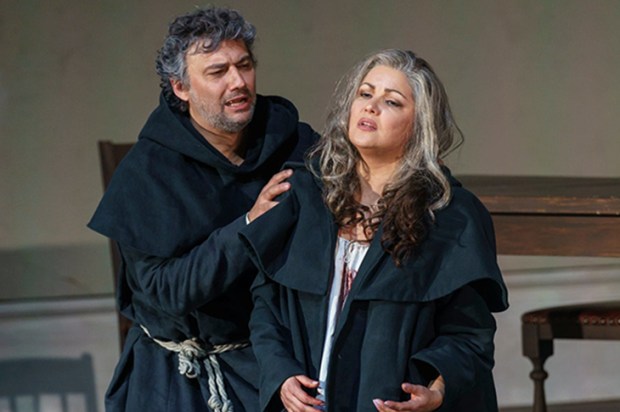
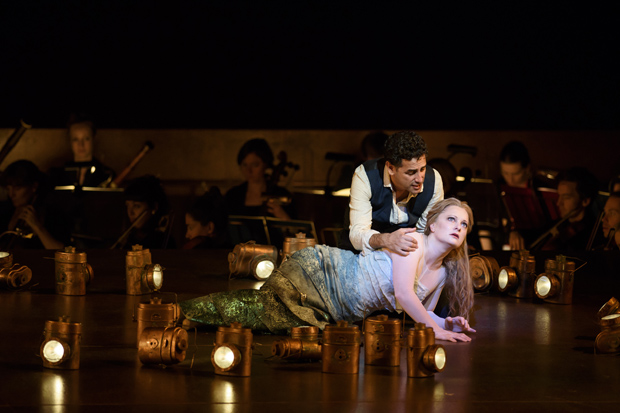
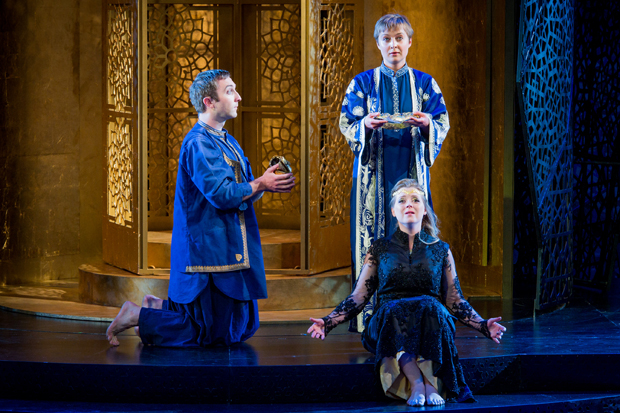
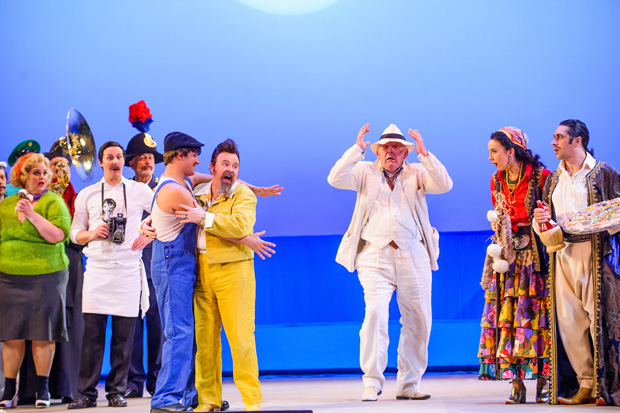






Comments
Don't miss out
Join the conversation with other Spectator Australia readers. Subscribe to leave a comment.
SUBSCRIBEAlready a subscriber? Log in